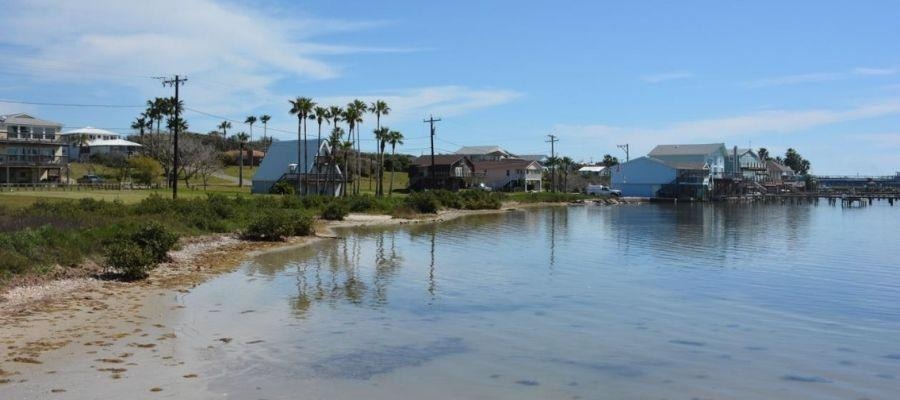Reviewed by Alex SmithSep 20 2021
A civil engineer from the University of Texas at Arlington (UTA) is working with a Texas coastal town to create an economical sensor network that will help the community track the effects of climate change.
 The Ingleside on the Bay shoreline is low-lying and unprotected in some spots, making it susceptible to flooding. Image Credit: University of Texas at Arlington.
The Ingleside on the Bay shoreline is low-lying and unprotected in some spots, making it susceptible to flooding. Image Credit: University of Texas at Arlington.
Assistant professor Michelle Hummel from the College of Engineering, UTA, has received a $150,000 grant from the National Science Foundation to assist the city of Ingleside on the Bay, Texas. The city has witnessed environmental impacts on its community from ship wakes, higher tides, and water and air pollution caused by industrial development.
The co-principal investigators on the project include:
- Karabi Bezboruah, associate professor of planning in the College of Architecture, Planning and Public Affairs (CAPPA)
- Yonghe Liu, associate professor in computer science and engineering
- Oswald Jenewein, assistant professor of architecture in CAPPA
- Kathryn Masten, a former resident of Ingleside on the Bay and President and CEO of Masten-Cain Consulting. Masten is skilled in community informatics or the application of information and communication technologies in the development of a community.
The residents in Ingleside on the Bay, situated near Corpus Christi, have voiced their concerns regarding climate change and its impact on the community because of the exposed shoreline of the city, as well as apprehensions that growth in the oil sector could harmfully affect water and air quality.
Hummel and her team will build a cost-effective sensor network to track water and air quality and flooding potential, and then shift the data to an online dashboard. They will arrange a community meeting this fall to obtain input from the residents about where water and air quality stations and flood monitoring sensors should be set up based on local knowledge of dangers and vulnerabilities.
Federal and state organizations operate sensors in the region, but they are usually costly and local-level coverage is not sufficient. The economical sensors Hummel will deploy will offer better coverage all over the community to help detect street-level influences and will be tested against current research-grade sensors for corroboration.
Besides sensor deployment and data collection, the researchers will also assess the current communication and information-sharing networks in the area to know how local establishments participate in environmental policymaking and permitting practices. This could help ascertain connections with other regulatory agencies or community groups that should be formed or supported to enhance future advocacy efforts.
Finally, the research team hopes to help the community gather, examine and leverage environmental data more efficiently so that residents have more knowledge to influence the activities that are carried on around them.
By bringing together physical and social scientists and working directly with local residents and community groups to codesign our research approach, we can better address the complex challenges facing Ingleside on the Bay and work toward more sustainable, community-driven solutions.
Michelle Hummel, Assistant Professor, College of Engineering, University of Texas at Arlington